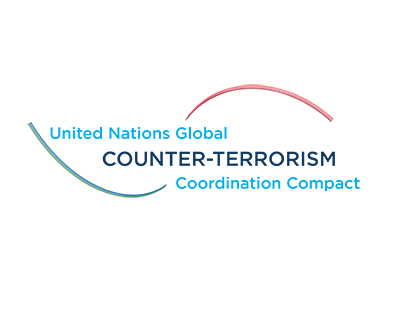Coordination Committee and Working Groups
Counter-Terrorism Compact Coordination Committee
The Counter-Terrorism Compact Coordination Committee was launched by Secretary-General António Guterres on 6 December 2018 in the presence of the heads and principals of the participating entities. The Coordination Committee is responsible for providing oversight and strategic level guidance to the inter-agency Working Groups on the implementation of the UN Global Counter-Terrorism Strategy, in accordance with the coordination and implementation frameworks outlined in the Counter-Terrorism Compact.

The Counter-Terrorism Compact Coordination Committee is chaired by the Under-Secretary-General for Counter-Terrorism and comprises representatives of all Counter-Terrorism Compact entities, as well as the Chairs and Vice-Chairs of its eight Working Groups. The UN Office for Counter-Terrorism (UNOCT) provides Secretariat support to the Coordination Committee.
The Coordination Committee adopted on 8 June 2022 its second Joint Programme of Work, for 2022-2023, to guide its work and that of its Working Groups.
Counter-Terrorism Compact Working Groups
Counter-Terrorism Compact entities collaborate, as member or observer, through eight inter-agency Working Groups, tasked with operationalizing, under the Compact’s umbrella, enhanced coordination and coherence of UN counter-terrorism efforts with a view to achieving concrete impact on the ground. This inter-agency structure is aligned with the four pillars of the UN Global Counter-terrorism Strategy and the priorities of Member States. The Working Groups provide a regular platform for collaboration and exchange of information, joint mobilization of resources, and development and implementation of joint programmes and projects.
Inter-agency Working Groups of the Counter-Terrorism Coordination Compact:
| Pillar I | Measures to address the conditions conducive to the spread of terrorism |
|---|---|
| 1. Preventing and countering violent extremism conducive to terrorism (PCVE) | Chair: United Nations Office of Counter-Terrorism (UNOCT) Vice-Chairs: United Nations Alliance of Civilizations (UNAOC), United Nations Development Programme (UNDP), United Nations Educational, Scientific and Cultural Organization (UNESCO) |
| Pillar II | Measures to prevent and combat terrorism |
|---|---|
| 2. Border management and law enforcement relating to counter-terrorism | Chair: Counter-Terrorism Committee Executive Directorate (CTED) Vice-Chairs: International Criminal Police Organization (INTERPOL), United Nations Office on Drugs and Crime (UNODC) Co-Chair: World Customs Organization (WCO) |
| 3. Emerging threats and critical infrastructure protection | Chair: International Criminal Police Organization (INTERPOL) Vice-Chairs: United Nations Office for Disarmament Affairs (UNODA), United Nations Interregional Crime and Justice Research Institute (UNICRI), Organisation for the Prohibition of Chemical Weapons (OPCW) |
| 4. Criminal justice, legal responses and countering the financing of terrorism | Chair: United Nations Office on Drugs and Crime (UNODC) Vice-Chairs: Counter-Terrorism Committee Executive Directorate (CTED), United Nations Office of Counter-Terrorism (UNOCT) |
| Pillar III | Measures to build States’ capacity to prevent and combat terrorism and to strengthen the role of the United Nations system in this regard |
|---|---|
| 5. Resource mobilization and monitoring and evaluation | Chair: United Nations Office of Counter-Terrorism (UNOCT) Co-Chairs: Counter-Terrorism Committee Executive Directorate (CTED), United Nations Office on Drugs and Crime (UNODC) |
| 6. National and regional counter-terrorism strategies (NARS) | NARS Working Group: Chair - Counter-Terrorism Committee Executive Directorate (CTED), Vice-Chair - United Nations Office of Counter-Terrorism (UNOCT) |
| Pillar IV | Measures to ensure respect for human rights for all and the rule of law as the fundamental basis of the fight against terrorism |
|---|---|
| 7. Promoting and protecting human rights and the rule of law while countering terrorism and supporting victims of terrorism | Chair: Office of the High Commissioner for Human Rights (OHCHR) Vice-Chair: United Nations Office of Counter-Terrorism (UNOCT) |
| 8. Adopting a gender sensitive approach to preventing and countering terrorism | Chair: UN Women Vice-Chair: Counter-Terrorism Committee Executive Directorate (CTED) |

